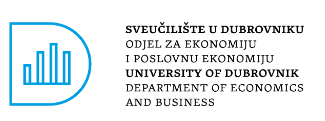Contents
In Sweden there is an organization working with Swedish students to give them tools to start their own companies in the future. This organization is called JA Sweden and their most recognized educational program is called the Company Program (UF-företagande) where students are taught about entrepreneurship. There are many parts in this work of course but one of the important parts is to work with setting short-, medium- and long-term goals and to evaluate your work.
The following information is from JA Sweden’s own website:
“About JA Sweden
Junior Achievement Sweden is a non-profit organization working to promote entrepreneurship among Swedish students and to facilitate relationships between industry and the Swedish school system.
Entrepreneurship can be taught
Junior Achievement Sweden provides educational programs in entrepreneurship for elementary to high school students to ensure the progression of entrepreneurship education within the Swedish school system. The programs are designed to stimulate creativity and entrepreneurship, give students insight into /.../ business conditions and driving forces and to raise awareness of the importance of entrepreneurship. The cornerstone of Junior Achievement Sweden philosophy is that entrepreneurship can be taught. Junior Achievement Sweden is part of the global organization Junior Achievement Worldwide.
(https://www.jaworldwide.org/] my comment).
Three teaching curriculums
Entrepreneurship in elementary and middle school is about creativity, innovation, and activity. The objective is to secure a teaching environment that is characterized as being creative and dynamic and motivates pupils and teachers to learn and teach. Junior Achievement Sweden offers three teaching curriculums, Our Community, Its My Business and Economics for Success, reaching approximately 60 000 students yearly.
450 000 students
Junior Achievement Sweden's most recognized educational program is called the Company Program (UF-företagande). The Company Program provides high school students the opportunity to start and run a business during an academic year. Students experience first-hand an entire life cycle of a business from recognizing an unfulfilled market need, writing a business plan, setting up their company, raising capital to produce/develop the product, marketing and sales of the product and finally liquidating operations and paying out any dividends.
/.../
Through trade shows and competitions, students focus on product innovation, entrepreneurship and commercial competencies. In 2019/20 school year, over 33 700 students have participated in the Company Program and more than 450 000 students have participated in the education program since 1980.
Junior Achievement Sweden launched an alumni network in 2010 to continue to stimulate entrepreneurship among former students and allow young entrepreneurs to share their experiences. Today, the network consists of alumni who meet regularly throughout the year at educational workshops and meetings.
Two studies
Karl Wennberg, PhD, Stockholm School of Economics, Center for Entrepreneurship, has studied and released two studies on Junior Achievement Sweden Company Program graduates. The 2011 study reported that Junior Achievement Sweden Company Program graduates were more like to start a company than people without Company Program experience and that those companies started by Company Program graduates had higher revenue, job creation and company longevity. The 2013 study reinforced that Junior Achievement Sweden Company Program graduates were more likely to start a company. In addition, the study found that Company Program graduates who chose to seek employment had a higher level of labour market establishment than those students without Company Program experience. These studies showed entrepreneurship training has a positive role in the individual’s entrepreneurial career and in workforce readiness and reinforces that Junior Achievement Sweden’s mission is important for the continued entrepreneurial development of Sweden”
Bibliography







